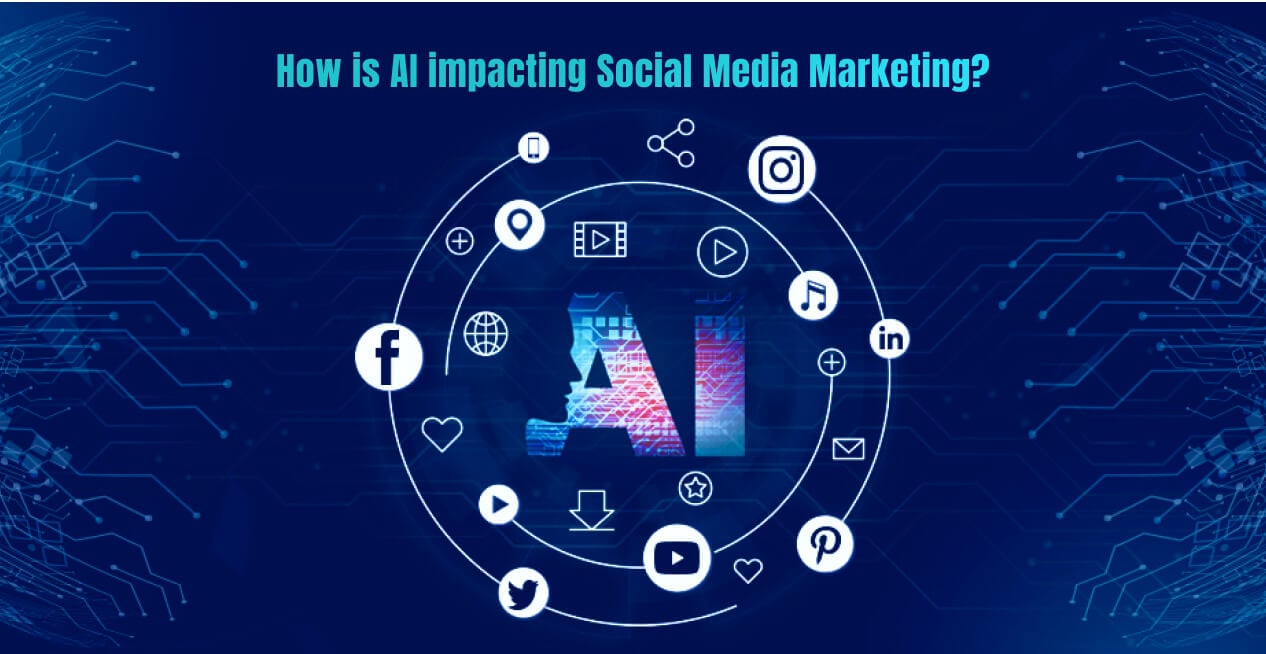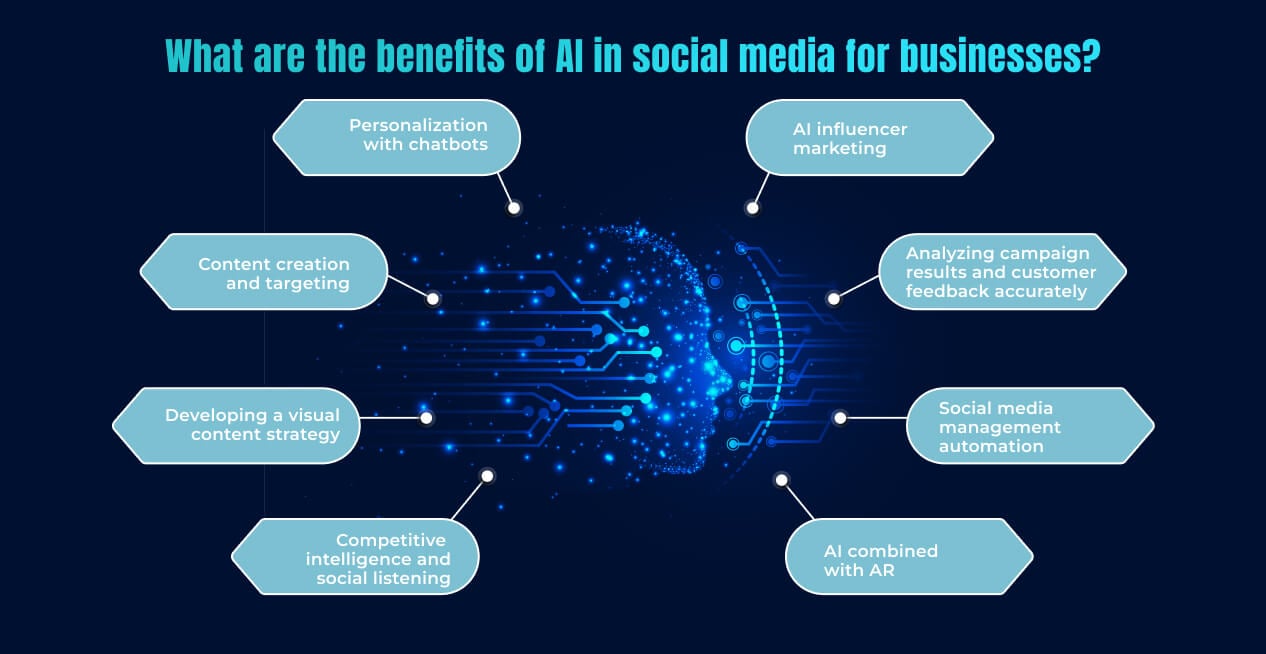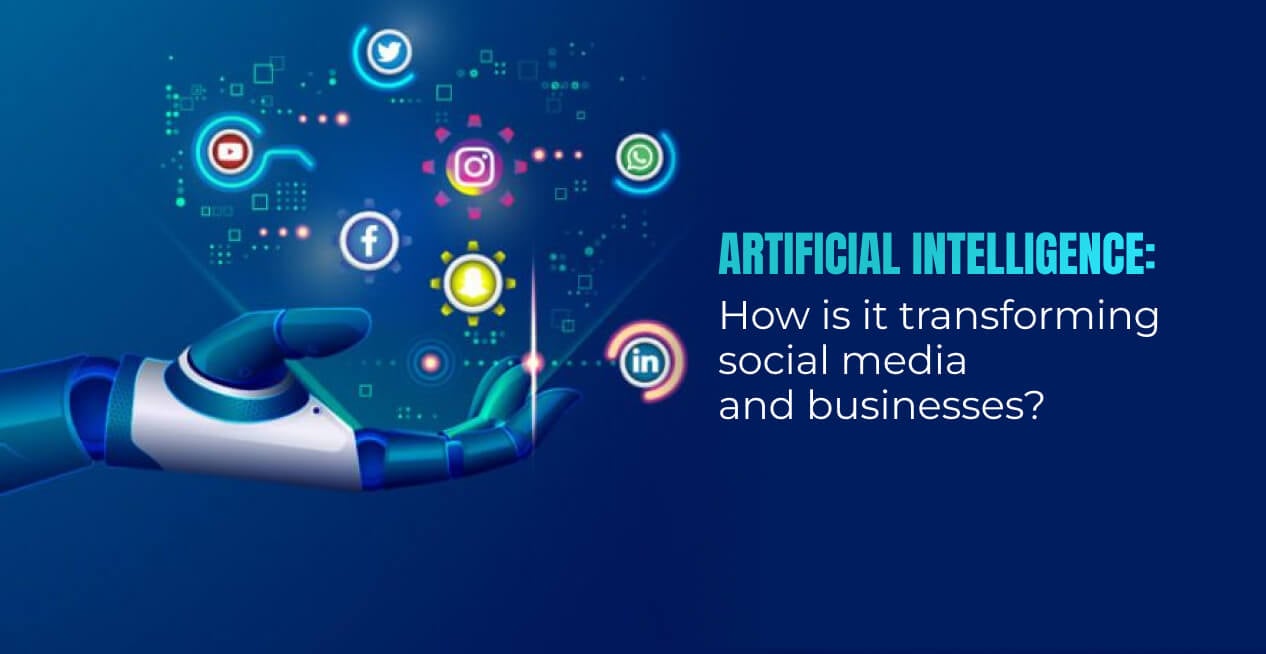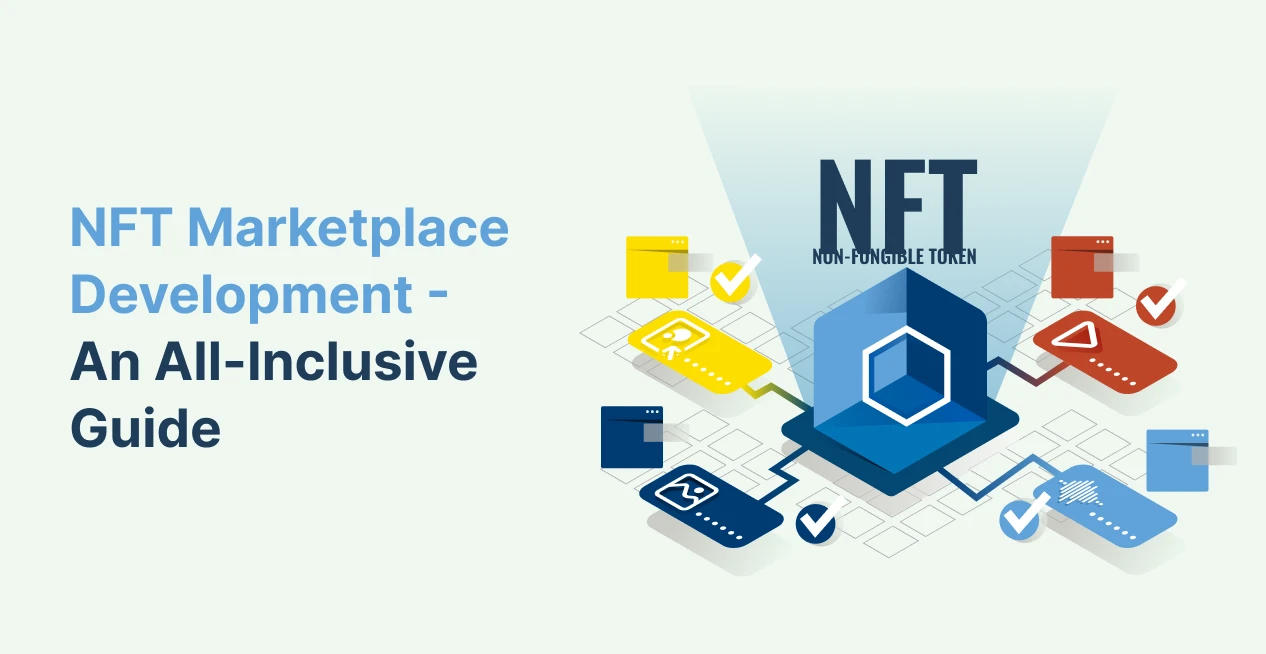-
What is Artificial Intelligence?
-
How is AI currently transforming the way of Social Media Marketing?
-
How AI works in social media?
-
How is AI impacting Social Media Marketing?
-
What are the benefits of AI in social media for businesses?
- 1. Personalization with chatbots
- 2. Content creation and targeting
- 3. Developing a visual content strategy
- 4. Competitive intelligence and social listening
- 5. AI influencer marketing
- 6. Analyzing campaign results and customer feedback accurately
- 7. Social media management automation
- 8. AI combined with AR
-
Challenges of AI in social media
-
Future of AI in social media
-
Wrapping up
Artificial Intelligence is still playing a significant role in all fields of science, technology, and business. One of the most obvious examples is social media. Artificial Intelligence is reshaping the social media landscape in ways we never imagined. AI is revolutionizing how businesses approach social media marketing today, from content creation and ad optimization to social listening and influencer marketing. Most web users are unaware of the extent to which Artificial Intelligence is embedded within their favorite social media platforms. The main reason for this is that AI frequently works behind the scenes. Indeed, AI-powered social media features are the ones we use the most without even realizing it. To provide you with an in-depth overview of what AI is in social media and how Artificial Intelligence is changing the social media world, we’ve put together the following information. Let us have a look!
What is Artificial Intelligence?
Artificial Intelligence refers to machines and programs capable of analyzing information, drawing conclusions, and making decisions in response to it. It is characterized by the ability to learn, accumulate knowledge, and apply it. Big data opens the door to AI deep learning and its implementation in any field, automating many processes and increasing efficiency.
These intelligent systems can be programmed to perform tasks such as speech recognition, image recognition, pattern recognition, decision-making, and language translation. Several subfields of AI are involved in the development of algorithms to perform specific tasks, including machine learning, Natural Language Processing (NLP), and computer vision. AI’s ultimate goal is to create systems with human-like intelligence and behavior in a variety of environments.
How is AI currently transforming the way of Social Media Marketing?
Previously, AI was primarily used to analyze large amounts of data and provide relevant insights to companies.
A social media manager, for example, would use a social listening tool to learn what people are saying about their company on social media. They’d then skim through the data to see what people were saying about their company when they were saying it, and how they were saying it. This is a time-consuming process that necessitates a large number of human resources. However, AI can do this work faster and more accurately than humans.
As AI advances, it will be able to do more than just analyze large amounts of data. AI can now be used in social media marketing to perform a wide range of tasks.
- Creating personalized content
- Choosing the best time to publish
- Content scheduling and auto-posting to social media accounts
- Responding to messages and comments
- Provide answers to frequently asked questions through chatbots and other means.
How AI works in social media?
Social media platforms you use every day are heavily reliant on Artificial Intelligence (AI). Facebook uses advanced Machine Learning to deliver content, recognize your face in photographs, and target users with advertisements. Instagram utilizes Artificial Intelligence to recognize images. Using Artificial Intelligence, LinkedIn provides job suggestions, while Snapchat uses computer vision to detect features and overlay real-time filters. Just like this, there are many uses of AI in social media. AI is used behind the scenes to power features on the world’s most popular social media platforms. An AI algorithm or Machine Learning system regulates how content and advertising are positioned in front of consumers across all social media platforms and each social media post. You can hire dedicated developers to build a machine-learning application to boost your digital transformation.
How is AI impacting Social Media Marketing?

AI is having a profound impact on SMM. By leveraging the power of AI, social media marketers are creating personalized content for social media users, providing improved customer service and enhanced user experience. This is possible by analyzing the huge amount of data from social media and extracting insights that are used in creating marketing strategies and campaigns.
Social media marketing can benefit from AI by automating its tasks, such as content creation, scheduling, and analysis. As a result, social media marketers can focus on more strategic tasks, such as developing marketing strategies and building relationships with customers.
You must have seen the specific ads targeted to your preferences, that is possible because AI has the ability to target ads to specific demographics. AI algorithms analyze user behavior to determine which users are most likely to engage with a particular ad and then target the same ad to those users. As a result, social media marketers can gain the benefit of higher engagement rates and the most efficient advertising campaigns.
Artificial Intelligence has been used successfully in SMM campaigns in many cases. For instance, many brands use AI to identify trending topics on social media to create customized content. At the same time, some other brands use AI-powered chatbots to provide customized product recommendations and improve customer service.
What are the benefits of AI in social media for businesses?
The AI impact on businesses is immense since it is transforming the way enterprises operate and providing new growth opportunities for them. Its ability to process massive amounts of data allows it to improve key performance metrics such as revenue, productivity, business growth, digital transformation, and efficiency. Let’s look at some ways businesses can use Artificial Intelligence in social media.

1. Personalization with chatbots
More followers mean more revenue, but it also means spending more time attracting their attention. The benefits of Artificial Intelligence in social media include providing high-quality customer support and providing a personalized experience for customers. Integrating AI-powered chatbots could be the ideal solution for improving personalization in business processes and attracting more customers. One of the best examples of chatbots is ChatGPT, which has taken the world by storm. You can hire machine learning developers to build chatbots that respond to the user intelligently.
2. Content creation and targeting
Businesses can use AI to create innovative social media content as well as manage distribution and targeting more efficiently. Advertisement and marketing professionals can use AI-powered tools to recognise the content and generate relevant social media posts for their audiences.
3. Developing a visual content strategy
More videos and images in a campaign or social media post are well known to attract a larger audience than standard ones. As a result, marketers can use the visual intelligence generated by AI marketing tools to analyze trends and create more effective content. They can also optimize their brand’s engagement, reach, and growth on social media by refueling their content based on accurate data.
4. Competitive intelligence and social listening
Understanding who the true competitors are may not always be sufficient. To gain a competitive advantage, marketers can use AI to analyze social media strategies, inspect what competitors are doing, and figure out how to do it better than them. By analyzing these content marketing mistakes, businesses can avoid the pitfalls that their competitors have encountered.
5. AI influencer marketing
Virtual influencers are the pinnacle of AI-social media integration, created with 3D modeling software to give them the appearance of real people. They can share content, leave comments, and do almost everything that regular users can. The virtual celebrities Shudu and Miquela are popular examples. They are an excellent tool for branding from a business standpoint, as they can be modeled to their liking, placed against a digital background, and posted.
6. Analyzing campaign results and customer feedback accurately
Social media platforms, such as Facebook and Instagram, offer analytics to track user engagement and identify top-performing posts and hashtags. Marketers can use these tools to understand the mistakes and failed attempts from previous marketing efforts and offer a different course of action for the next one. Artificial Intelligence-powered tools can also help marketers understand the mistakes and failed attempts from previous marketing efforts.
7. Social media management automation
AI-based social media management tools can automate the task of maintaining brand visibility and awareness on social media platforms while also increasing influence by highlighting the brand’s creativity. This can help startups and businesses increase brand visibility and awareness.
8. AI combined with AR
AI and Augmented Reality have combined to form an upcoming trend in the social media space, allowing users to try on products before purchasing. Brands such as Lenskart have implemented this virtual try-on experience on their social platforms to increase sales and gain a competitive advantage.
Challenges of AI in social media
While AI has improved user experiences on social media, it is possible to come across the limitations of AI. There are challenges, such as algorithmic bias and a need for regulatory frameworks and ethical guidelines to catch up. Furthermore, the impact of AI on social media jobs in the future may be automated, changing the nature of work. To address these concerns, proactive initiatives must be undertaken to develop new training programmes and support for workers in affected fields, as well as policies to ensure that the benefits of AI are widely distributed.
Future of AI in social media
The future of AI technology in social media marketing looks promising, with potential advancements such as the use of AI-powered chatbots, hyper-targeted social media ads, and more sophisticated social media listening tools. AI technology will provide marketers with new and creative ways to engage with their target audiences. Furthermore, AI technology may lead to the development of more sophisticated social media listening tools that analyze social media conversations and provide insights into customer behavior, preferences, and trends. It is predicted that chatGPT will have a significant impact on social media marketing. This technology can help businesses improve their social media presence by personalizing interactions, automating routine tasks, and gathering customer feedback. OpenXcell can help you develop your own ChatGPT-like application. Contact us for ChatGPT application development and integration services.
Wrapping up
The use of AI tools has significantly impacted social media marketing by enabling users to analyze user data more efficiently and create targeted campaigns. AI also allows for automation and personalization, allowing marketers to reach their target audience more effectively.
To stay ahead in this ever-evolving field, app development companies need to design intelligent solutions to help businesses solve problems, automate tasks, and serve customers better. OpenXcell provides AI and ML development services across the globe, helping organizations to unlock opportunities with intelligent AI-driven solutions. Start your project with us!








